Bamiyan Reflection
Bamiyan Cultural Centre, Bamiyan, Afghanistan
︎ Aug. 2019 - Dec. 2019
︎ Research Theory Design Work
︎ Exhibition at Roca Beijing Gallery


Design Abstract
Reflection intends to capture the essence of the remnant niches of the destroyed Buddhas in Bamiyan. With empty niches of the destoryed Bamiyan Buddhas serving as the extension of enframed visual images, the built volumes orchestrate a diachronic space for people to acknowledge, to contemplate, and to reflect on the effect caused by acts of violence, wars, and destructions.
“...I want to tear myself from this place, from this reality, rise up like a cloud and float away, melt into this this humid summer night and dissolve somewhere far, over the hills.”
Reflection intends to capture the essence of the remnant niches of the destroyed Buddhas in Bamiyan. With empty niches of the destoryed Bamiyan Buddhas serving as the extension of enframed visual images, the built volumes orchestrate a diachronic space for people to acknowledge, to contemplate, and to reflect on the effect caused by acts of violence, wars, and destructions.
“...I want to tear myself from this place, from this reality, rise up like a cloud and float away, melt into this this humid summer night and dissolve somewhere far, over the hills.”
- Khaled Hosseini, The Kite Runner
Design Initiative
The initial inspiration for project, Reflection, was dawned from the novel, The Kite Runner by Khaled Hosseini. Pinyang was deeply attracted by the relationship that threads the story between the protagonist Amir and his minority half-brother Hassan. Although Amir’s mistake indirectly became the reason that causes the death of Hassan, he realized what his selfish behavior and cowardice had led to, and in the end redeemed himself by saving Hassan’s son, Sohrab.
Judging and examining as an outsider, Pinyang believes people deem Amir as a symbolic fictional character for Afghanistan for a reason. Despite the invaders and some of the appalling crimes conducted by certain groups of Afghanistan extremists, there are hopes that one day the country as a whole will redeem itself from the blunders that have led to the pain and the struggle for its people.
Reflection aspire to capture the introspectional emotion from the author Khaled through architecture. Pinyang believes architecture, though is always man-made, has the power and the capacity of conveying emotions like the natural landscape of a place. They both situate beings in atmospheres, in which traces of memories are reflected and can be felt by senses or be observed by eyes. Pinyang also believes this introspectional emotion has the power to turn the burden of a history, which is constituted of struggles, into positive involvements of learning from the past, and inspires to fight for a better future.
Bamiyan City Mapping
![]()

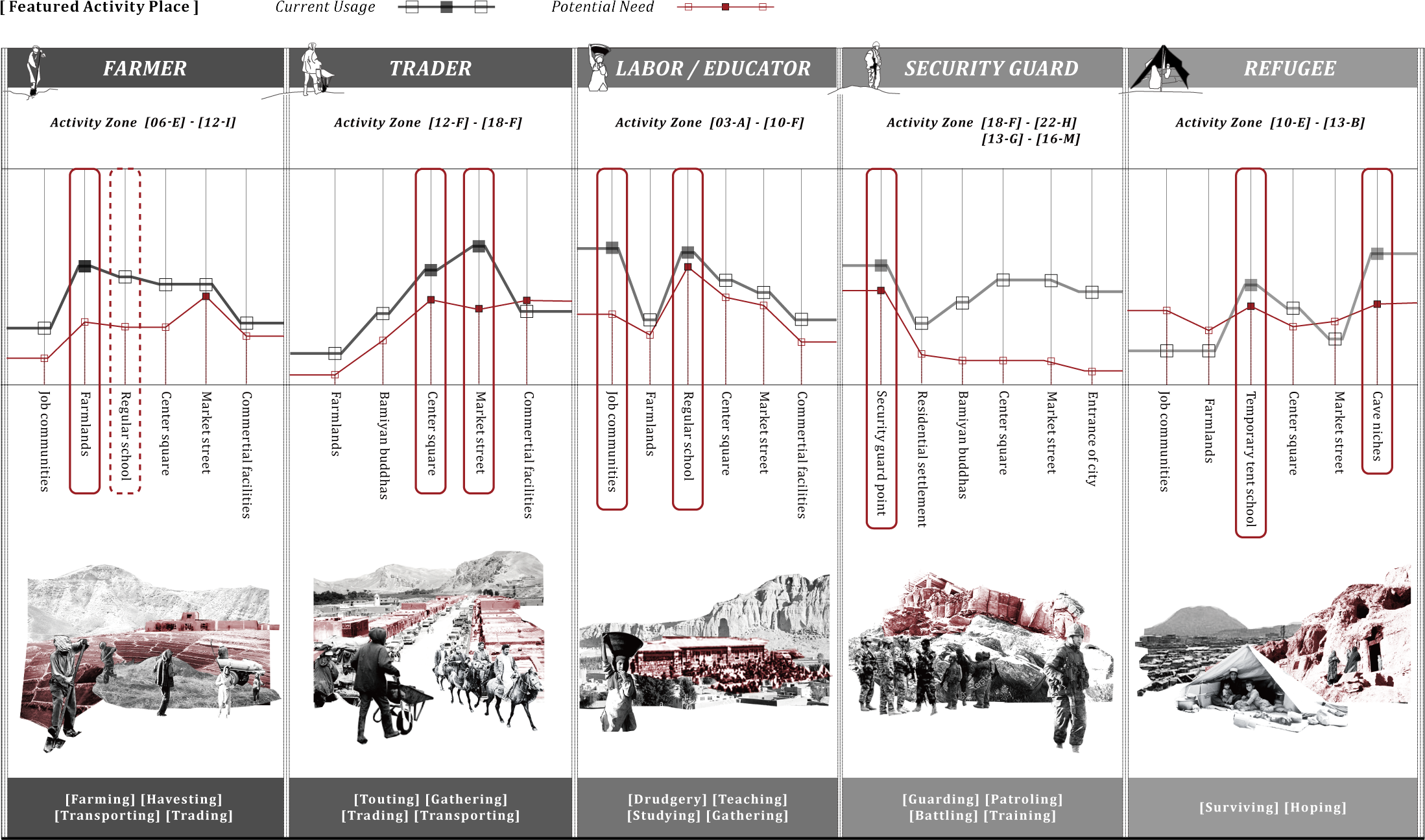
With the intention to explore the tangible site conditions and the intangible genius loci of Bamiyan. The acts of mapping & data analysis above reveal essential connections between the people and the places. The overall mapping of the city is underlined with the scopes of activity zones by 5 distintive groups of population and the landscape highlights. The relationship among the demographies, the places, and the activity contents are examined. Current usages & potential needs of each featured place under categorized population groups are scrutinzed to savvy the potential users.







Viewing Panel Experiment
Pinyang believes the incredible landscape in Bamiyan, the cliffside niches of destoryed buddhas, while carries cultural memories of the area, should be left empty as a testimony of the violence that once occurred, and should also be enframed to spark hopes for the unfortunate. With intentions to reaffirm the spirit of the city, he selected the optimal site for overlooking, and studied views through distinctive layers of selected potential seeing panels. Potential basic volumes are further defined base on the viewing opportunities.
Pinyang believes the incredible landscape in Bamiyan, the cliffside niches of destoryed buddhas, while carries cultural memories of the area, should be left empty as a testimony of the violence that once occurred, and should also be enframed to spark hopes for the unfortunate. With intentions to reaffirm the spirit of the city, he selected the optimal site for overlooking, and studied views through distinctive layers of selected potential seeing panels. Potential basic volumes are further defined base on the viewing opportunities.
Solution Diagrams Based on Views
![1. Selecting Viewing Panels]()
![2. Extending Panels To Volume]()
![3. Connecting Volumes]()
![4. Defining Courtyards]()
![5. Creating Shops for Traders]()
![6. Connecting Visitors & Tourists]()
![7. Creating Spaces for Educators]()
![8. Integrating Topography]()








Sustainable Architectural Solution
Fully integrated with the earth like the vernacular carving niches in Bamiyan, the architecture harness the thermal energy from the soil to sustain a comfortable environment year-around.
Selected Buddha Cliff Views
![]()
Fully integrated with the earth like the vernacular carving niches in Bamiyan, the architecture harness the thermal energy from the soil to sustain a comfortable environment year-around.
Selected Buddha Cliff Views

Design Masterplan

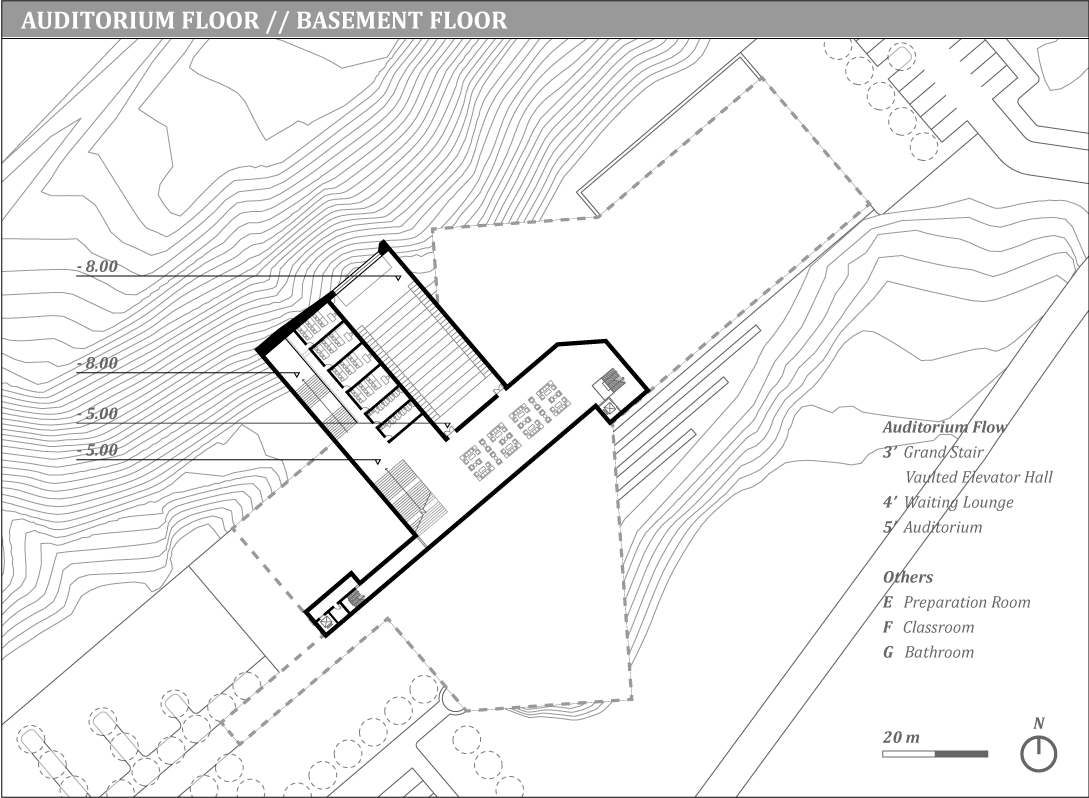
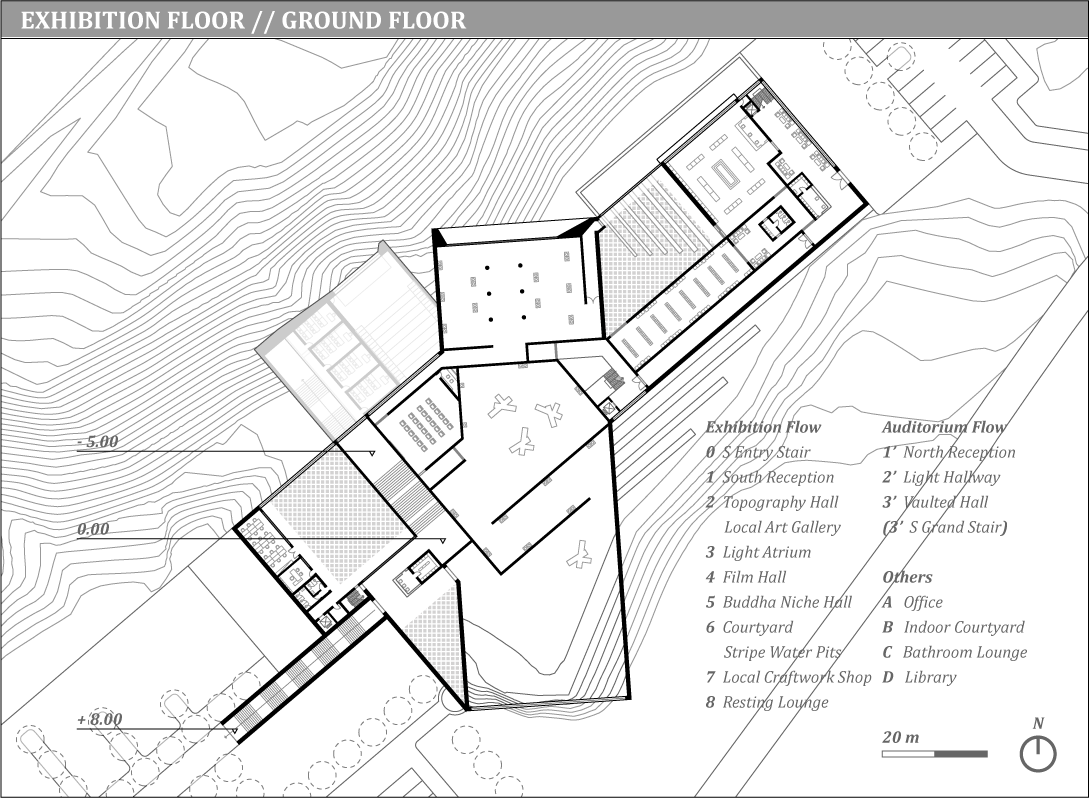
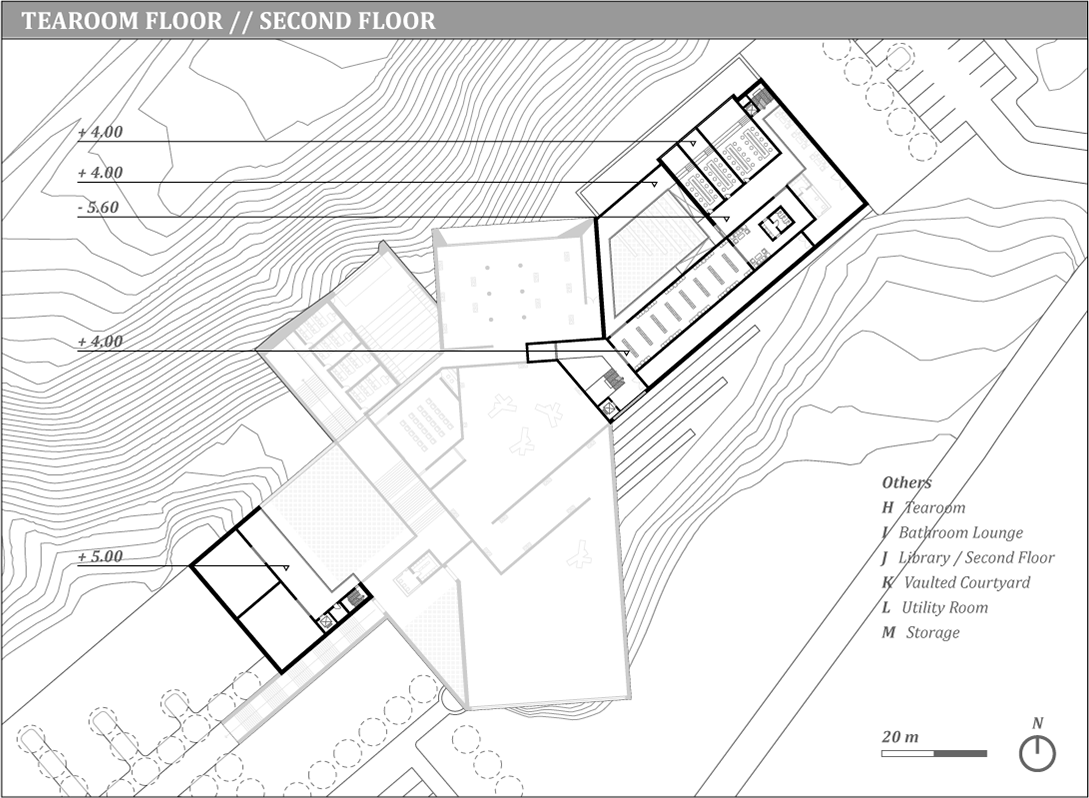
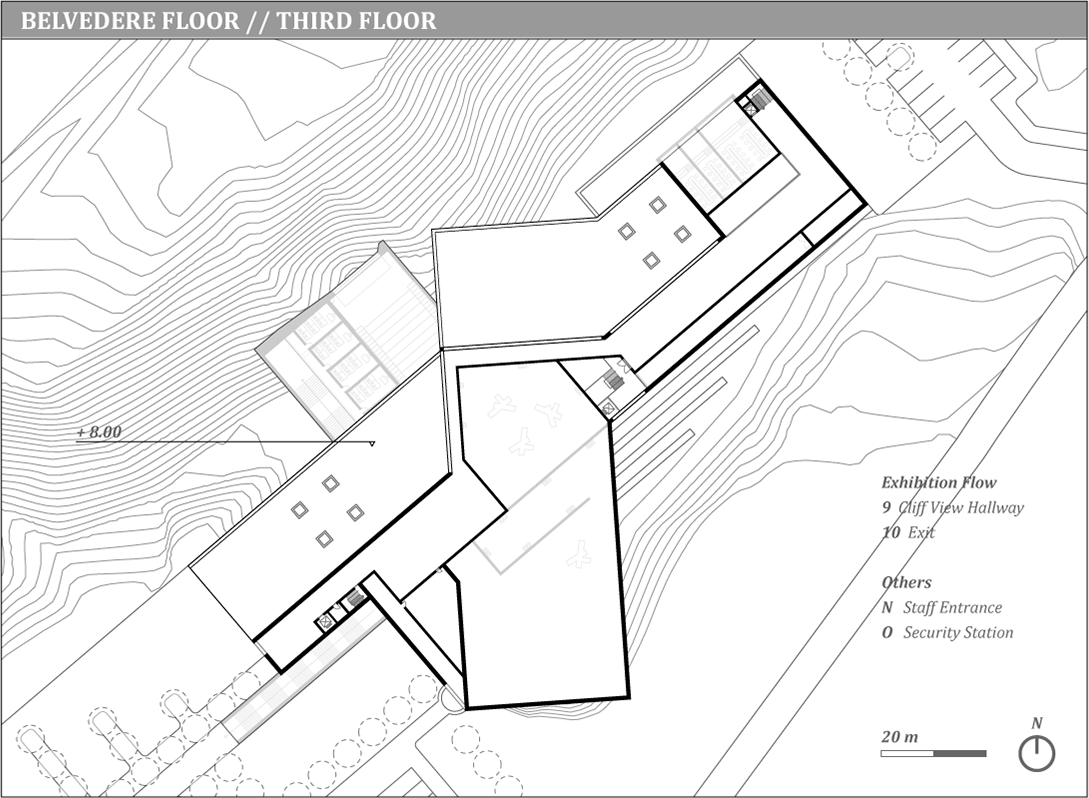
Physical Model Representations






Project Reflection is not about feeling a sense of nostalgia for the past, but instead, it is about reflecting the made reality as a mirror for the devastating effect by wars and conflicts. Pinyang believes the tortuous history of Afghanistan should not be the ultimate definition of the country itself, and in Reflection Pinyang intends to offer a tangible solution that helps people to see beyond the past, to live the present, to seek for rebirth from the ruins, and eventually to find ways to nirvana.
“...Because when spring comes, it melts the snow one flake at a time, and maybe I just witnessed the first flake melting. - Amir ”
- Khaled Hosseini, The Kite Runner
Special Thanks To
Yaobin Wang for providing helps in research and design
Muzhi Chen and Qiao Zhang for providing professional feedbacks
Aaron Thompson and Jiao Jian for providing overall feedbacks
© Pinyang Chen
© Pinyang Chen